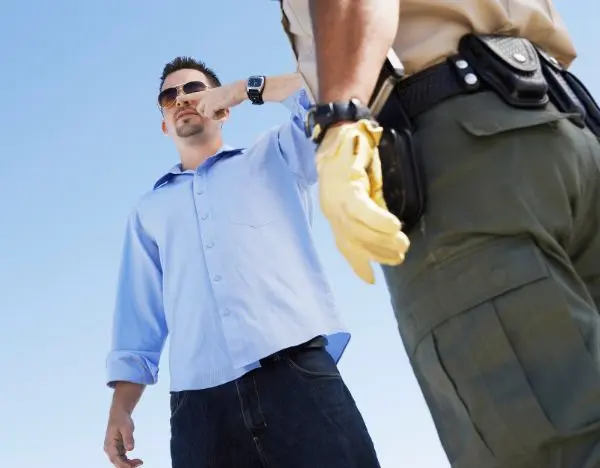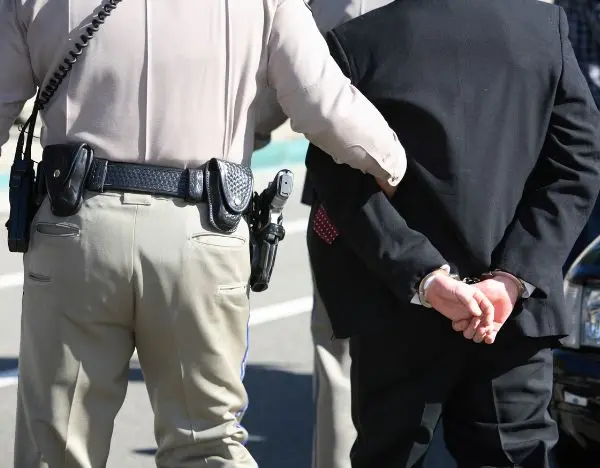What are My Rights in a NYC Sobriety Test?

Navigating a sobriety test in Buffalo, NY can be intimidating, especially if you're unsure about your legal rights and obligations. Understanding these rights can significantly impact how you handle the situation and can help protect you if you're suspected of driving under the influence (DUI) of alcohol or drugs. Here at Trbovich Law Firm, we are committed to educating our clients about their rights during such critical moments. Here’s what you need to know about your rights during a sobriety test in Buffalo, NY.
What is a Sobriety Test?

A sobriety test, commonly referred to in law enforcement as a field sobriety test (FST), is a series of physical and cognitive evaluations that police officers use to determine whether a driver is impaired by alcohol or drugs. These tests are designed to assess the driver's balance, coordination, reflexes, and ability to follow directions—all of which can be adversely affected by intoxication. Here’s a closer look at what a sobriety test typically involves:
Types of Field Sobriety Tests
Field sobriety tests generally include a series of tasks standardized by the National Highway Traffic Safety Administration (NHTSA) to ensure consistency and reliability in their administration. The three standardized tests are:
Horizontal Gaze Nystagmus (HGN) Test
This test involves observing the eyes of a driver as they follow a slowly moving object such as a pen or flashlight, horizontally with their eyes. The officer looks for signs of nystagmus (involuntary jerking of the eyes), which is exaggerated when a person is impaired by alcohol.
Walk-and-Turn Test
In this test, the driver is instructed to take nine steps, heel-to-toe, along a straight line, then turn on one foot and return in the same manner. This test assesses the ability to maintain balance, walk straight, turn while maintaining balance, and stop in order to assess divided attention capabilities.
One-Leg Stand Test
The driver must stand with one foot approximately six inches off the ground and count aloud by thousands (One thousand-one, one thousand-two, etc.) until told to put the foot down. The officer times the subject for 30 seconds to assess balance, coordination, and the ability to follow a simple instruction.
Non-Standardized Tests
In addition to the standardized tests, officers might use other non-standardized tests depending on the situation or their training. These can include asking the driver to recite a portion of the alphabet, perform finger-to-nose tests, or count backward from a certain number.
Chemical Tests
While not part of the field sobriety tests, chemical tests such as breathalyzers, blood tests, or urine tests are often used in conjunction with FSTs to measure blood alcohol content (BAC) or the presence of drugs. Refusal to submit to these tests can lead to automatic penalties such as license suspension due to implied consent laws in many jurisdictions.
Legal Implications
The results of sobriety tests can be crucial in DUI/DWI cases. Poor performance on these tests can lead to arrest and be used as evidence in court. However, the accuracy of FSTs can be challenged based on the conditions under which they were administered (e.g., uneven surface, poor lighting), the driver's physical or neurological conditions, or improper administration by the officer.
What are My Rights in a NYC Sobriety Test?
1. Right to Refuse Field Sobriety Tests
In Buffalo, NY, you are not legally required to participate in field sobriety tests. You have the right to refuse these tests without direct legal penalties, such as fines or additional criminal charges. However, refusal can still lead to your arrest if the officer has other evidence of impairment.
2. Right to Refuse a Portable Breathalyzer Test
You also have the right to refuse a preliminary breathalyzer test offered at the roadside. This refusal does not carry immediate legal penalties but does not prevent an officer from arresting you based on other observations of impairment.
3. Implied Consent Law
New York’s implied consent law means that by driving on New York roads, you automatically consent to submit to chemical tests if you are arrested for a DUI. Refusing these tests at the station after an arrest can result in automatic penalties, including a mandatory license suspension and fines, irrespective of the outcome of any DUI charges.
4. Right to Know the Reason for the Stop
You have the right to know why you were stopped. An officer must have a reasonable suspicion to pull you over, such as observing signs of impaired driving or a traffic violation.
5. Right to Remain Silent
You are not obligated to answer questions that could be self-incriminating. You have the right to remain silent when asked about where you have been, whether you have been drinking, or how much alcohol you have consumed.
6. Right to an Attorney
You have the right to consult with an attorney as soon as possible after being detained. While you do not have the right to have an attorney present during chemical testing, you can seek legal advice before any significant interrogation or procedures.
What To Do If You're Pulled Over and Asked To Do a Sobriety Test
Being pulled over and asked to perform a sobriety test can be a nerve-wracking experience. Knowing how to handle such a situation can help protect your rights and potentially influence the outcome of any legal issues that might arise. Here’s a step-by-step guide on what to do if you're pulled over and asked to do a sobriety test:
Stay Calm and Be Polite
Your behavior during a traffic stop can have a significant impact. Stay calm, be polite, and keep your hands visible, usually on the steering wheel, to avoid any misunderstandings about your actions.
Pull Over Safely
As soon as you notice that a police officer is signaling you to pull over, find a safe place to stop your vehicle. Turn off the engine, turn on the interior light if it’s dark, and wait for the officer to approach.
Provide Requested Documents
The officer will likely ask for your driver’s license, vehicle registration, and proof of insurance. Provide these documents without argument. You are required to comply with these requests as part of the driving regulations.
Understand Your Rights
You have the right to remain silent and the right to refuse to perform field sobriety tests without legal penalties for these specific refusals. However, understand that in many places, refusing a chemical test (like a breathalyzer) after an arrest may lead to automatic penalties such as license suspension due to implied consent laws.
Decide Whether to Perform Field Sobriety Tests
You are not legally required to complete field sobriety tests (such as the walk-and-turn test or one-leg stand test), and you can politely refuse to take these tests. These tests are voluntary and can be subjective in their interpretation. Be aware that refusal may still lead to your arrest if the officer has other reasons to believe you are impaired, but it will deny the prosecution additional evidence of impairment at trial.
Consider Chemical Test Implications
If you are arrested, you will likely be asked to take a chemical test (breath, blood, or urine). Refusal to submit to a chemical test can result in immediate penalties, including a suspended driver's license and fines, and can be used against you in court as evidence of guilt.
Do Not Argue or Resist Arrest
If the officer decides to arrest you, do not resist or argue. Resisting arrest can lead to additional charges. You can contest the charges later in court with legal assistance.
Contact a DWI/DUI Lawyer
If you are arrested or charged with DUI/DWI, contact an attorney immediately. An experienced DUI/DWI lawyer can provide legal advice, help protect your rights, and potentially challenge any evidence against you.
Document Everything
After the incident, write down everything you remember, including details about what you did before the stop, the officer’s behavior, instructions given during tests, and any statements made. This information could be crucial for your defense.
What Are The Penalties For a DUI in Buffalo?
Penalties for a DUI in Buffalo can vary depending on several factors, including whether it is your first offense and your BAC level. Generally, they can include fines, driver’s license suspension or revocation, possible jail time, mandatory alcohol education or treatment programs, and the installation of an ignition interlock device on your vehicle.
How can a DWI Lawyer help if I’m charged with DUI?
A qualified DUI lawyer can help in several ways:
- Assessing the evidence: An attorney can determine if there were any flaws in how tests were administered or if there are other grounds on which to challenge the charges.
- Negotiating penalties: If pleading guilty is in your best interest, a lawyer can negotiate for reduced penalties.
- Defending your case in court: An experienced lawyer can develop a strong defense strategy and advocate on your behalf in court.
Stopped for a Sobriety Test in Buffalo, NY? Contact Trbovich Law Firm Today!
Taking swift legal action is crucial if you've been pulled over and subjected to a sobriety test. Trbovich Law Firm's experienced DUI/DWI attorneys are ready to defend your rights and guide you through the legal process. Don't let one incident define your future. Contact us now to schedule a consultation and ensure your rights are protected every step of the way.

